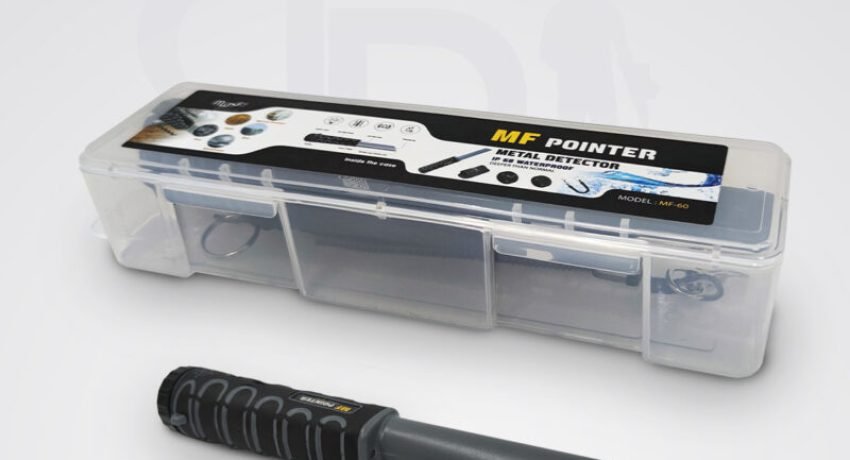Metal detecting has evolved far beyond a casual hobby. With advanced detectors available, enthusiasts and professionals alike can cover more ground, dig less, and uncover valuable finds with greater efficiency. Yet, even with a powerful detector, many seasoned treasure hunters agree that one tool makes the entire process smoother: the pinpointer. Compact, handheld, and incredibly precise, pinpointers have become a standard part of modern detecting kits. But why are they so important, and how do they enhance the overall experience?
Accuracy and Target Recovery
When a detector signals a possible find, it typically identifies the area under the coil but not the exact spot. This means that without a secondary tool, you might spend a lot of time digging holes larger than necessary. This is where a Pinpointers tool becomes invaluable. A pinpointer allows you to zero in on the precise location of the metal object within the hole, reducing digging time and minimizing the chances of damaging the target.
For detectorists working in parks, beaches, or historical sites, the importance of accuracy cannot be overstated. Quick recovery means you can move on to the next target faster while also preserving the landscape by avoiding unnecessary disturbance of soil.
Practical Field Use and Technology
Beyond accuracy, pinpointers shine in their practicality. Many models are waterproof, allowing detectorists to search rivers, lakes, and beaches with ease. Advanced designs now include sensitivity adjustments, vibration alerts, and LED lights to help in low-light conditions. A standout option is the MF 60, which combines professional-grade precision with durability for real-world conditions. Its compact design ensures it can be used comfortably with one hand, while its detection depth and sensitivity features make it suitable for both beginners and experienced hunters.
These technological improvements are why pinpointers are no longer considered optional. They are the bridge between locating a target with your main detector and actually recovering it in the field.
Speed and Efficiency
Time efficiency is a major reason detectorists rely on pinpointers. The longer you spend digging one hole, the fewer signals you’ll be able to investigate during your outing. With a pinpointer in hand, the process becomes streamlined: detect with your main unit, dig a small plug, then use the pinpointer to immediately find the exact spot. In practice, this reduces wasted time and increases the number of finds per session.
Reducing Target Damage
Anyone who has dug for relics, coins, or jewelry knows the frustration of accidentally scratching or damaging a valuable item while trying to recover it. Large digging tools increase this risk. Pinpointers reduce the need for aggressive digging by helping detectorists locate targets more delicately. By knowing exactly where the object is, you can approach it carefully and preserve its condition—something especially important for historical artifacts or delicate jewelry.
Comfort for Beginners and Experts
For newcomers to metal detecting, the learning curve can be steep. Digging blindly often leads to frustration and missed opportunities. Pinpointers help bridge this gap by making recovery more intuitive. Beginners find themselves spending less time second-guessing and more time enjoying their discoveries. For experts, pinpointers become second nature, a trusted companion that keeps the workflow smooth and efficient.
Durability in Tough Environments
Modern detectorists often find themselves working in rugged conditions—rocky soil, riverbanks, or even desert landscapes. Pinpointers are designed to handle these environments with rugged casings and weather-resistant designs. The ability to perform in harsh settings is what makes them reliable companions. Tools like the MF 60 are built with durability in mind, so you can take them anywhere without worrying about performance degradation.
Why Pinpointers Are Now Essential
At one time, pinpointers were considered luxury accessories, but the landscape has changed. Today, most serious detectorists consider them a necessity. They improve accuracy, speed up recovery, protect valuable finds, and enhance the overall detecting experience. In essence, they maximize the potential of your main metal detector and ensure you get the most from every outing.
Conclusion
Modern detecting is about efficiency, precision, and enjoyment. Pinpointers are more than just handy gadgets—they are essential tools that transform the detecting process. They save time, reduce damage, and make the hobby more rewarding for everyone, from first-timers to professionals.
When combined with a reliable main detector, pinpointers like the MF 60 provide the precision and durability needed for today’s challenging environments. For detectorists looking to elevate their game, investing in a quality pinpointer is not just recommended—it’s essential.











